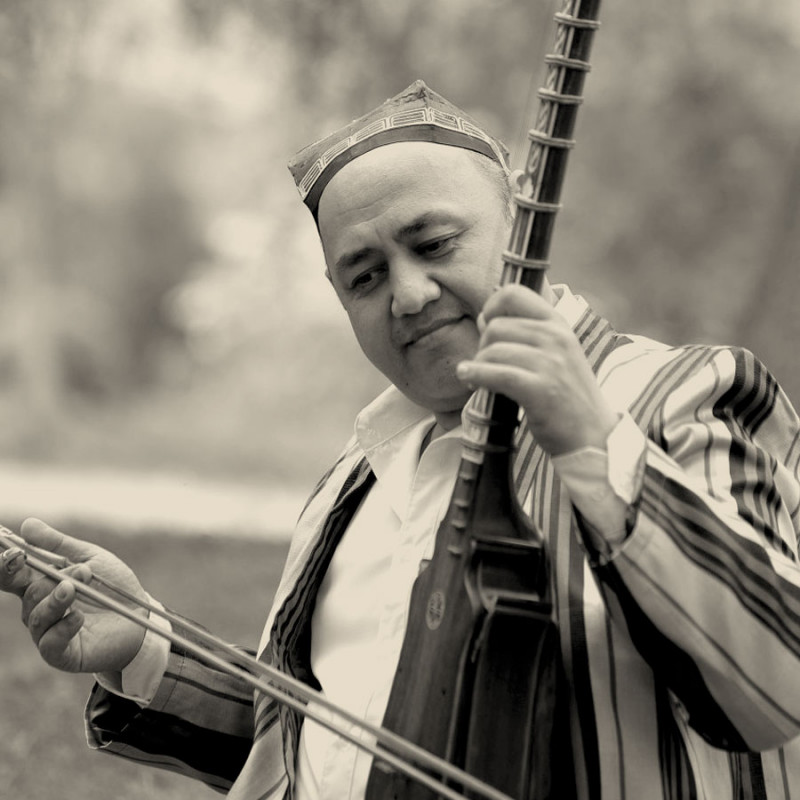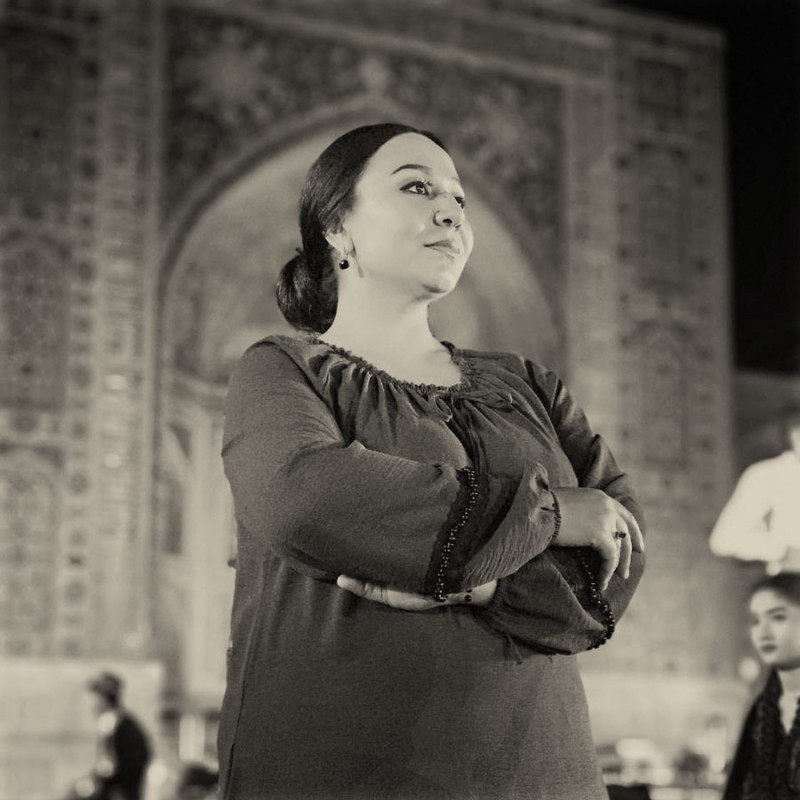DUGAH
Dugâh: Two Moments is a record that celebrates one of the most sophisticated of Uzbekistan’s spiritual treasures – Shashmaqâm (six maqâms), featuring two of the most prominent guardians and performers of the tradition today – Abror Zufarov and Nodira Pirmatova. Musicians perform a selection of mushkulot (instrumental melodies) and nasr (vocal tunes), from one of the six maqâms called Dugâh.
The Dugâh maqâm can be translated as two moments or two stations is the fourth maqâm of Shashmaqâm – six musical suites or cycles that are organized by melodic mode, metrical pattern, and rhythm. The modes of Shashmaqâm are widely perceived as having the power to arouse a particular colour, emotion or effect, which arises from a specific set of canons and constraints that collectively constitute the structure of the mode. In terms of the emotion it evokes, Dugâh is characterised as joyful or winged.
ABROR ZUFAROV

Abror Zufarov is a virtuoso instrumentalist who has mastered his performance on the stringed-instruments tanbur, sato and dotâr in both the Tashkent-Fergana and Samarkand-Bukhara schools. He is a grandson of two outstanding and crucial figures in the history of Uzbek classical professional music: Turgun Alimatov and Usmon Zufarov. Through deep theoretical investigation, Abror Zufarov has taken an enormous interest into safeguarding, revitalising and transmitting this intricate cultural legacy to future generations. Across the latest 20 years of his professional life,Abror Zufarov has been trying to reconstruct the authentic sound of the tanbur that was lost in the 1930s by reviving the metrical pattern of the instrument, thus bringing an old – new sound to Maqâm
Video interview with Abror Zufarov
NADIRA PIRMATOVA

Nadira Pirmatova's voice has a captivating power. Her unique knowledge of Uzbek and Tajik poetry makes Pirmatova one of the most exceptional performers who can use shiru shakar – the Uzbek and Tajik languages –effectively which makes her an accomplished performer of both Tashkent–Fargana and Samarkand–Bukhara maqâms. Nadira Pirmatova’s practice can also be considered unique as she can accompany herself on tanbur and dotâr, which is rare among female singers in sedentary cultures.Pirmatova has continued her research in music theory and is a master teacher in the State Conservatory of Uzbekistan, and she has also been a winner of the prestigious Shark Taronalari Festival in Uzbekistan. Nodira Pirmatova is a disciple of such great Uzbek female performers as Saodat Kobulova and Halima Nosirova.
Video interview with Nadira Pirmatova